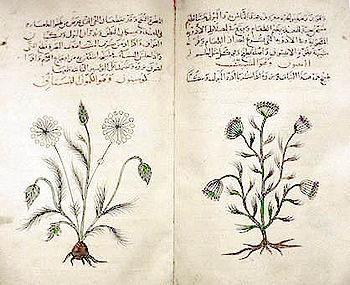
Back علم العقاقير Arabic Farmacognosia AST Farmakoqnoziya Azerbaijani ভেষজ ঔষধবিজ্ঞান Bengali/Bangla Farmacognòsia Catalan Farmakognozie Czech Farmakognosi Danish Pharmakognosie German Φαρμακογνωσία Greek Farmacognosia Spanish

Pharmacognosy is the interdisciplinary scientific study of natural drugs and bioactive compounds from plants, animals, and minerals—originally focused on identifying crude drugs but now expanded to molecular, chemical, ecological, and medicinal aspects of natural products.
Plants produce a variety of chemical compounds—primary metabolites essential for all plants and secondary metabolites with specialized roles like defense and pollination attraction—that include classes such as alkaloids, polyphenols, glycosides, and terpenes, many of which have therapeutic uses in humans and are isolated through bioassay-guided fractionation. Traditional medicine continue to inform modern pharmacology.
Microscopic evaluation plays a key role in identifying herbs, detecting adulterants, and examining distinctive plant tissues through methods such as measuring leaf constants, including the stomatal index, which expresses the proportion of stomata to epidermal cells.